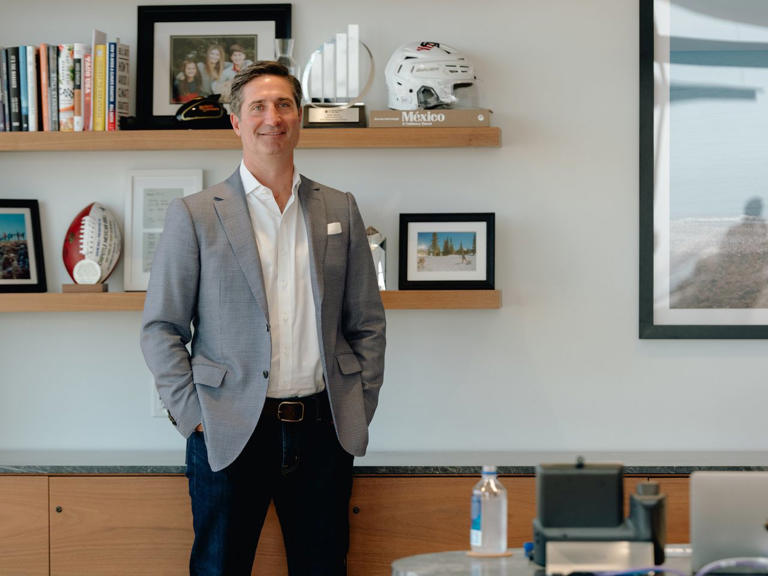Starbucks has made a bold and strategic move by appointing Brian Niccol, the current CEO of Chipotle Mexican Grill, as its new leader. This sudden management change comes at a critical time for the Seattle-based coffee giant, which is facing a range of challenges, including slowing business performance, increased competition, and pressure from activist investors seeking significant changes within the company.
Niccol is set to assume the roles of CEO and executive chairman of Starbucks’ board on September 9. This decision follows the resignation of Laxman Narasimhan, who had served as Starbucks’ CEO for about 16 months. Narasimhan was the first external executive to lead Starbucks in its modern era and was chosen by Howard Schultz, the influential entrepreneur who played a key role in building Starbucks into the global coffee powerhouse it is today.
Rachel Ruggeri, the current Chief Financial Officer of Starbucks, will step in as interim CEO until Niccol officially takes over. This transition comes as Starbucks grapples with significant operational and financial challenges. Since Narasimhan’s appointment in March 2023, Starbucks’ stock has underperformed, declining by approximately 22%, in stark contrast to the S&P 500 index, which has seen a rise of over 36% during the same period. This underperformance has raised concerns among investors and prompted increased scrutiny of the company’s leadership and strategic direction.
The decision to bring in Niccol, who has an impressive track record in the restaurant industry, is viewed as a strategic effort to revitalize Starbucks’ business. Niccol is widely credited with turning around Chipotle Mexican Grill after the company faced a series of food safety crises that severely damaged its reputation and customer trust. Under Niccol’s leadership, Chipotle experienced strong sales and profit growth, even as other restaurant chains struggled to maintain customer traffic. His ability to successfully navigate challenges and drive growth has positioned him as a capable leader to address the issues currently facing Starbucks.
Mellody Hobson, who has served as Starbucks’ executive chairwoman since 2021, revealed that discussions about the leadership change began roughly two months ago, ultimately leading to the decision to recruit Niccol. Hobson emphasized that the choice to hire Niccol was made solely by Starbucks’ board of directors, without direct involvement from activist investors like Elliott Investment Management or Starboard Value, who have recently shown interest in Starbucks’ stock. This move suggests that Starbucks’ board is focused on the long-term opportunities and potential for the company, rather than simply responding to short-term pressures from activist shareholders.
Howard Schultz, who remains Starbucks’ chairman emeritus, also expressed his approval of Niccol’s appointment. Schultz’s endorsement is particularly significant given his long-standing influence over the company’s direction and his role in shaping Starbucks’ brand and culture. Schultz stated that Niccol has his “respect and full support,” signaling a strong backing for the leadership transition.
The market’s initial reaction to the news of Niccol’s appointment has been positive, with Starbucks’ shares surging by around 14% in premarket trading. This sharp increase reflects investor optimism about Niccol’s potential to steer Starbucks back on a growth trajectory. In contrast, Chipotle’s shares fell by about 10%, indicating concerns among Chipotle investors about the impact of Niccol’s departure on the company’s future.
Chipotle has announced that Niccol will step down from his position at the end of August. In response, the company has appointed Scott Boatwright, the current Chief Operating Officer, as interim CEO. Additionally, Jack Hartung, Chipotle’s longtime CFO who had previously announced plans to retire, will remain with the company indefinitely to assist with the transition. Hartung will oversee strategy, finance, and supply chain operations during this period, ensuring a smooth handover of responsibilities.
Niccol’s success at Chipotle, where he led the company through a period of significant growth despite challenges such as rising prices and customer complaints about portion sizes, has positioned him as a strong candidate to tackle Starbucks’ current issues. His experience in revitalizing a struggling brand and driving operational improvements will be crucial as he takes on the leadership of the world’s largest coffee chain.
Starbucks is currently dealing with intensified competition in key markets like China, where it has historically relied on strong growth to offset slower performance in other regions. Additionally, the company is facing operational difficulties, including slowing customer traffic in its cafes and pressure on sales and profit margins. The decision to bring in a seasoned leader like Niccol suggests that Starbucks is serious about addressing these challenges head-on and positioning itself for future growth.
This leadership change is part of a broader effort by Starbucks to regain momentum and reassure investors, particularly in the face of pressure from activist shareholders who have been calling for strategic changes. Activist investors like Elliott Investment Management and Starboard Value have been closely monitoring Starbucks’ performance and advocating for improvements. While Hobson stated that these investors were not directly involved in the decision to hire Niccol, the leadership change is likely to appease some of their concerns and align with their calls for stronger management.
As Niccol prepares to take the helm at Starbucks, the company will be looking to leverage his expertise in turning around businesses and driving growth. The coming months will be critical as Niccol navigates the complexities of leading Starbucks and works to restore confidence among investors, employees, and customers alike. All eyes will be on how he addresses the company’s challenges and seizes opportunities for growth in a highly competitive and rapidly evolving global market.
